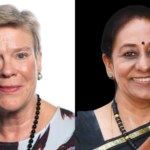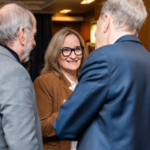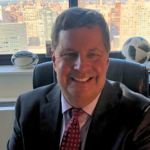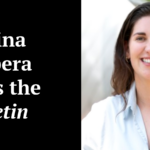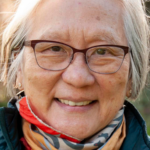UChicago Student Series: The ‘New Abnormal’ and Today’s Nuclear Landscape
By Talia Weiss | March 19, 2019
 Group discussions at the Bulletin's UChicago Student Series.
Group discussions at the Bulletin's UChicago Student Series.
On Friday, March 8, University of Chicago students studying policy, social science, and STEM participated in a program hosted by the Bulletin of the Atomic Scientists concerning present-day nuclear risks. The program, called “The ‘New Abnormal’ and Today’s Nuclear Landscape,” was the second event in a new student series designed to equip future scholars and leaders to tackle man-made existential threats. Speakers Rachel Bronson (president and CEO of the Bulletin) and Robert Rosner (UChicago Professor of Physics and Astrophysics, chair of the Bulletin’s Science and Security Board) opened the program by answering moderated questions on current issues like nuclear arms control and non-proliferation challenges. Afterwards, students broke into small groups to discuss strategies for addressing nuclear dangers.
Bronson provided insight into the Bulletin’s decision in January to leave the Doomsday Clock’s hand set at two minutes to midnight; this is the closest it has been to midnight since 1953, just after the Soviet Union tested its first hydrogen bomb. She emphasized the dangers posed by fracturing nuclear diplomacy between the US and Russia (as well as other nations) and discussed indicators that we are sliding into a new arms race. These included: nuclear “modernization” programs, recent withdrawals from the Intermediate-Range Nuclear Forces Treaty, and the New START Treaty’s impending expiration. Bronson also warned that a recent rise in information warfare is exacerbating nuclear risks by spreading falsehoods and confusion. These threats, along with climate risk, constitute the “new abnormal” referred to in the 2019 Doomsday Clock Statement.
By clarifying the motivation for developing and sustaining international arms control, Rosner drew the audience’s attention to specific scenarios that the Doomsday Clock urges us to avert. He argued that, while nuclear deterrence has some merit, miscalculation is a substantial danger which could lead to an accidental nuclear war. Moreover, Rosner explained, nuclear weapons diplomacy enables technical and political information-sharing, as well as transnational trust-building. Each of these outcomes prevents misunderstandings and meaningfully reduces the risk of nuclear war. He noted that, today, US government restrictions on how American scientists can engage with their counterparts in seemingly confrontational nations, like Iran, paralyze valuable communication channels and undermine the US capacity to understand foreign nuclear programs. The speakers also delved into topics including the possible influence of nuclear arms on civil conflict and the challenge of preventing governments from using civilian nuclear power equipment to produce weapons-grade material. Bronson concluded by stressing that a recent upsurge of interest in nuclear issues makes this an opportune time for young people to get involved and make their mark on nuclear policy.
In small groups, program participants then identified nuclear risks that they thought deserved particular attention, and each group discussed policy strategies to address one such danger. Participants debated issues including how to secure weapons in the event that a nuclear state collapses, prudent next steps for nuclear negotiations with North Korea, how to strengthen the NPT, and approaches to prevent proliferation. Since the program took place, some participants have also joined the Climate Policy Reading Group, an offshoot of the first event in the Bulletin’s student series, which I lead alongside chemistry PhD students Erik Thiede and Samuel Greene.
Together, we make the world safer.
The Bulletin elevates expert voices above the noise. But as an independent nonprofit organization, our operations depend on the support of readers like you. Help us continue to deliver quality journalism that holds leaders accountable. Your support of our work at any level is important. In return, we promise our coverage will be understandable, influential, vigilant, solution-oriented, and fair-minded. Together we can make a difference.
Topics: What’s New at the Bulletin

